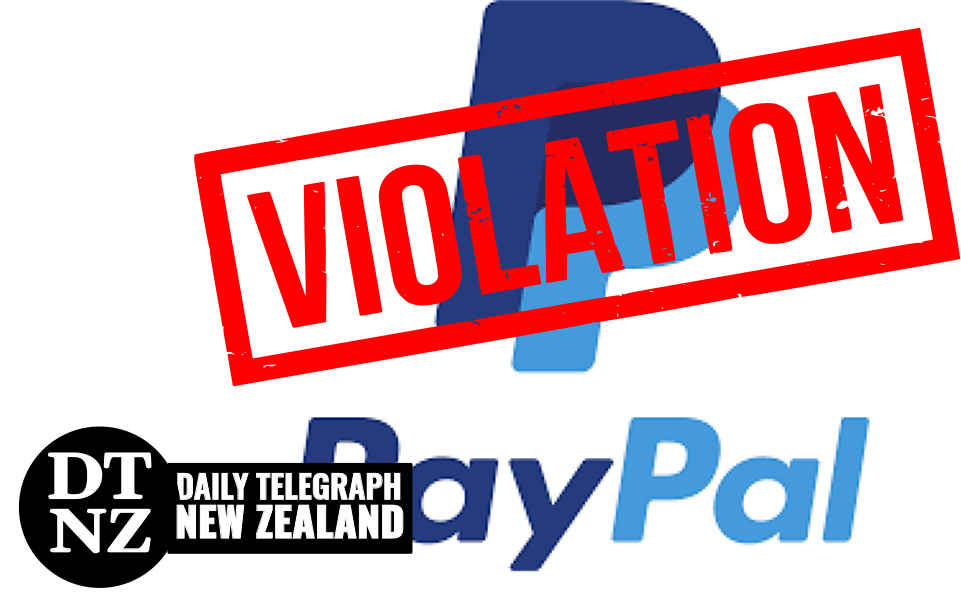The payment processor will slap violators with a $2,500 penalty at its sole discretion for posting ‘misinformation’.
Payment processor PayPal has warned users that spreading misinformation will be a deplatforming-worthy offense under new terms of service released on Friday and set to take effect next month. Not only could users lose their accounts for such indiscretions, the platform’s new terms state, but they could be fined $2,500 for every violation.
The revised terms of service ban the publication or promotion of any materials that “promote misinformation” or “present a risk to user safety or wellbeing,” expanding an already lengthy list of prohibited behaviors that includes nudity, sex, drugs, and promotion of “hate, violence, racial or other forms of intolerance that is discriminatory.”
Given the ambiguity of the term “misinformation” in recent years, PayPal’s new policy has some users on edge, with many believing it will simply be used to further silence content creators whose views fall outside the mainstream.
Violators are subject to a $2,500 penalty, to be assessed at PayPal’s “sole discretion,” taken directly from the user’s account, no explanation needed – users agree to the penalty when they sign up. The company states that the hefty sum is “a reasonable minimum estimate of PayPal’s actual damages” from the cost of tracking violations and repairing damage to its own reputation, acknowledging that actually calculating the financial cost of such activities is impossible.
Charges are imposed on a per-violation basis, meaning users who run afoul of the vague restrictions could conceivably be dinged for every item of “misinformation” shared – though how exactly that would be calculated is left to the user’s imagination. Such penalties could easily result in the cancellation of the user’s account altogether, as PayPal forbids users to hold a negative balance, without PayPal having to expressly close down the account – a practice that recently earned a rebuke from British politicians.
The new terms of service were unveiled less than two months after PayPal deplatformed three accounts linked to conservative commentator Tony Young, citing existing policies prohibiting the promotion of intolerance. However, the payment processor subsequently restored them after dozens of UK MPs wrote to government officials to complain about what they described as an “orchestrated, politically-motivated move to silence critical or dissenting views.” According to the Telegraph, some MPs have even threatened to include a measure barring companies such as PayPal from freezing users’ accounts for political reasons in forthcoming legislation.
PayPal accompanied the restoration of the accounts with a statement proclaiming its devotion to free expression.
